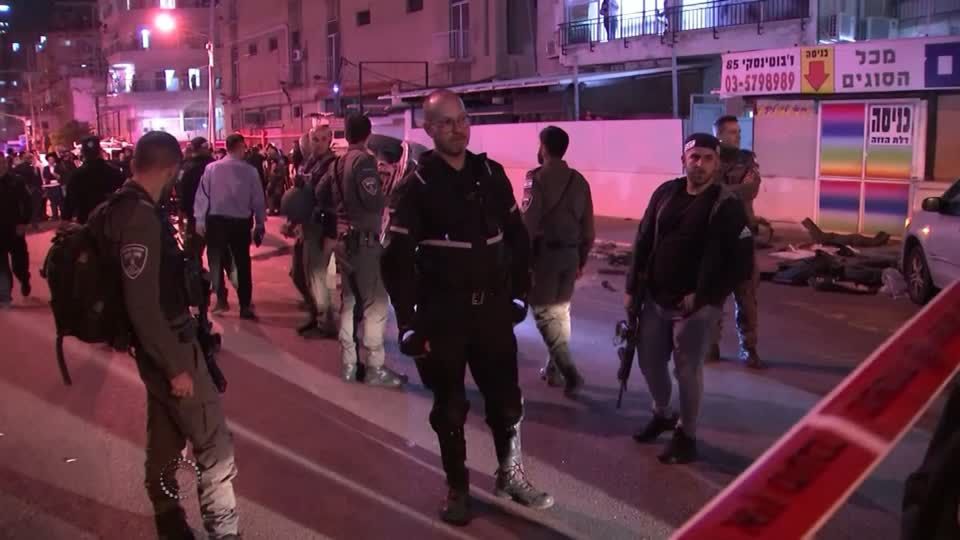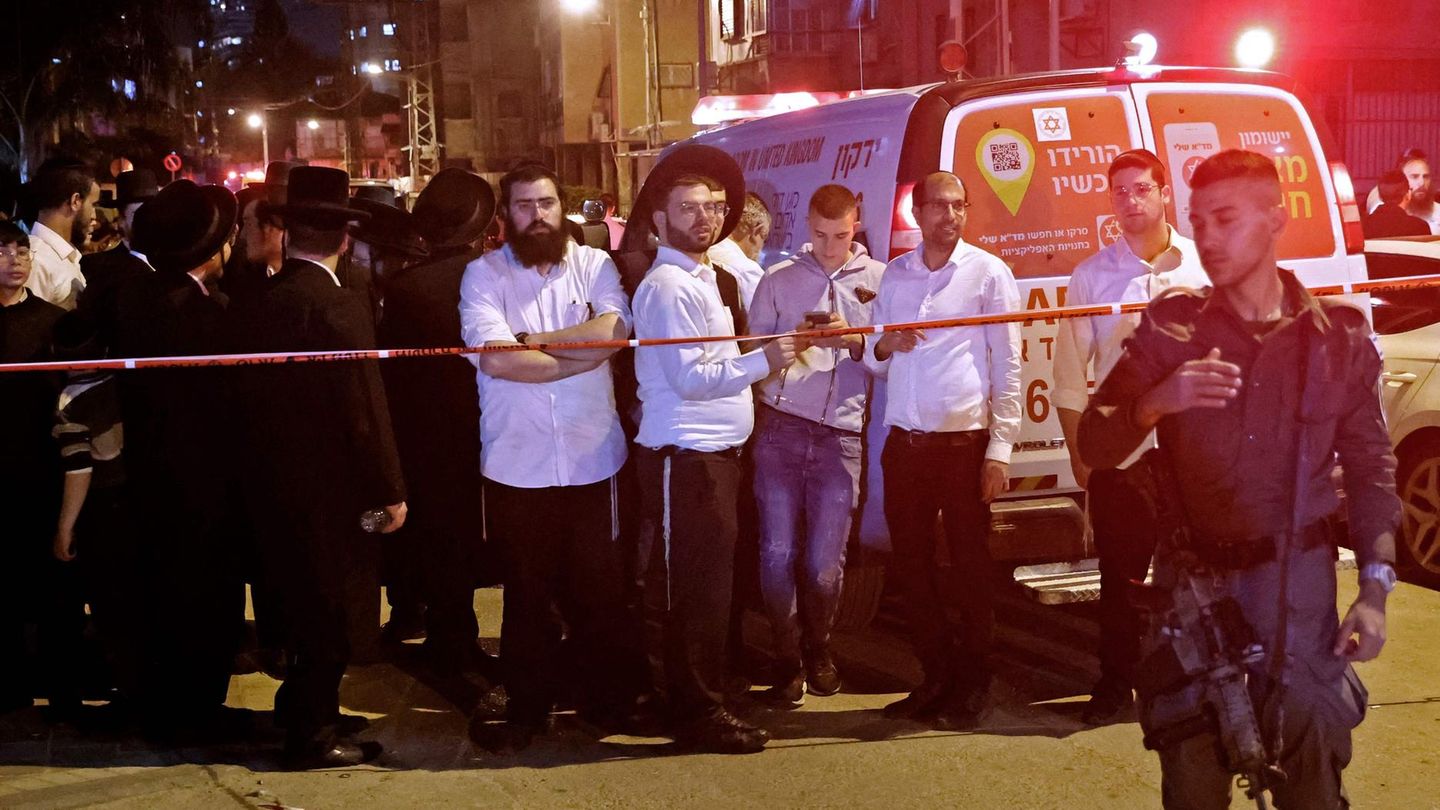In the face of a bloody wave of terror, Israel is massively increasing security measures in the country. The upcoming holidays of Muslims, Jews and Christians raise concerns of further violence.
It was the bloodiest week in Israel in 16 years. Eleven people were killed in a total of three attacks – as many were last killed in a suicide attack in Tel Aviv in April 2006. After the most recent attack in Bnei Brak near Tel Aviv with five fatalities, the Israeli army entered the place where the alleged Palestinian perpetrator lived on Wednesday night. The Palestinian news agency Wafa reported that six young men were arrested in the town of Jabed near the Palestinian city of Jenin.
On Tuesday evening, a 27-year-old Palestinian opened fire on passers-by in Bnei Brak with an M16 assault rifle. He was then shot dead by police officers. Among the fatalities were a policeman – a Christian Arab – and two Ukrainians. The other two victims were residents of the largely religious town of Bnei Brak – one of whom was reportedly holding his two-year-old son, who was unharmed.
Al-Aqsa Brigades Praise Attacks In Israel
In a video message, members of the Palestinian Al-Aqsa Brigades in Jenin praised the attack. One of three hooded men announced in Hebrew a “war throughout the State of Israel”. The Al-Aqsa Brigades are the military arm of Palestinian President Mahmoud Abbas’ Fatah movement. However, it is a loose network without a clear hierarchy, and local groups often act on their own.
President Abbas condemned the attack in Bnei Brak, according to Wafa. The killing of Palestinians and Israelis will “only contribute to a further deterioration of the situation”, especially in view of the upcoming holidays of Muslims, Christians and Jews. A further escalation of violence is feared during the Muslim month of fasting, Ramadan, which begins in early April. It is unclear whether Israel will now cancel planned relief for the Palestinians during Ramadan.
Suspects are Israeli Arabs
Four Israelis were killed in an attack in the desert city of Beersheva a week ago, and two police officers were shot dead in the coastal city of Khadera on Sunday. Both attacks were carried out by Arabs with Israeli citizenship. All three were supporters of the terrorist organization Islamic State (IS).
The attack by a Palestinian near Tel Aviv has now confirmed concerns that the bloody deeds could be copied from the occupied West Bank, the Israeli newspaper Haaretz wrote on Wednesday.
In the West Bank and Gaza Strip, as well as in Lebanon, there were spontaneous celebrations after the attack in Bnei Brak. A spokesman for the Islamist Hamas, which rules in the Gaza Strip, also called the attack a “rapid reaction to the height of shame in the Negev desert”. Foreign ministers from four Arab states, Israel and the USA met in the desert town of Sde Boker on Monday. In doing so, they demonstrated their willingness to cooperate more closely and took a stand against Iran. The Palestinians were not involved in the summit.
The Palestinian political scientist Jihad Harb sees the ongoing Israeli restrictions in the occupied Palestinian territories and the political hopelessness as breeding ground for attacks. Harb does not expect the wave of violence to end quickly: “Given the circumstances, we could see more of these attacks.”
1000 soldiers are to reinforce the police force
To prevent precisely this, the Israeli police are on high alert. The presence in busy places should be significantly increased. The police should also be reinforced by 1,000 soldiers, as Defense Minister Benny Gantz decided.

The wave of violence is also increasing the pressure on the already fragile eight-party coalition in Israel. It includes parties of all stripes – right, left and center – as well as an Arab party. The latter has clearly distanced itself from the attacks.
Prime Minister Naftali Bennett said after security consultations that Israel was facing a “challenging period”. In the history of the country there have always been such waves of terror. “They didn’t break us then, and they won’t break us now.”
Source: Stern
David William is a talented author who has made a name for himself in the world of writing. He is a professional author who writes on a wide range of topics, from general interest to opinion news. David is currently working as a writer at 24 hours worlds where he brings his unique perspective and in-depth research to his articles, making them both informative and engaging.

